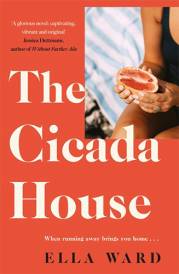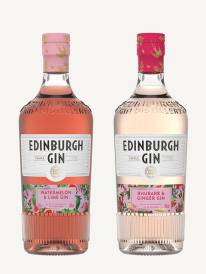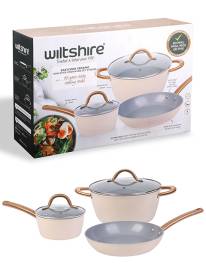Georgina Reid The Healing Power Of Plants Interview
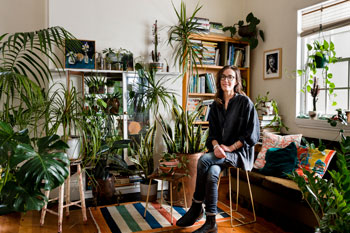
Nature's Medicine Cabinet: The Healing Power Of Plants
Before you reach for the paracetamol from the medicine cabinet have you considered checking your backyard, herb patch or community garden for a remedy fix?
Nature is our living and breathing chemist and becoming an apothecary in your own backyard can actually be considerably easy, even for those who aren't traditional plant enthusiasts.
From the power of rosemary that can reduce the risk of Alzheimer's disease to the Echinacea herb that fights off colds and flus, the benefits of growing and caring for your own remedial ferny friends are plentiful.
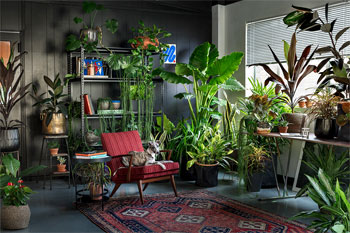 Plant Life Balance:
Plant Life Balance:
To inspire and motivate increased greening at home, Plant Life Balance, in collaboration with horticulturist and Founder of The Planthunter, Georgina Reid, have created four new plants to help Australians style their home with greenery, covering everything from growing homeopathic herbs to fitting out a space with stylish shrubs.
By using the Plant Life Balance app , users can rate the health of their space then style it to increase the rooms air quality and improve their wellbeing.
Health and wellbeing benefits:
While certain plants are celebrated for their medicinal properties, all plants provide miraculous health and wellbeing benefits according to research funded by Hort Innovation and undertaken by the University of Melbourne and RMIT University. The researchers concluded, for the first time ever, the definitive number of plants needed in the home for optimal health and wellbeing.
Simply adding 1 medium sized plant to a medium sized room, increases air quality up to 25%. And when it comes to improving wellbeing, 5 or more plants leads to feeling healthier and happier, (direct benefits include improved mood and concentration and indirect benefits like productivity).
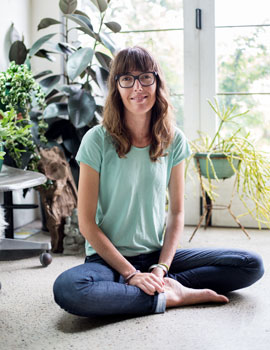 Interview with Georgina Reid, Founder and Editor of The Planthunter
Interview with Georgina Reid, Founder and Editor of The Planthunter
Question: Where and when did your love for plants begin?
Georgina Reid: I have loved plants all my life. I grew up in the garden with my mum. I spent school holidays weeding, mulching and pruning. I can't remember ever not gardening. Officially, I began studying horticulture and landscape design in 2002, graduating in 2004. My life, today, is completely overgrown with plants! They're my muse.
Question: Do you have a favourite plant?
Georgina Reid: That's like asking a parent if they have a favourite child! I love them all!
Question: What plants offer the highest remedial benefits?
Georgina Reid: Aloe vera is great - I love having a pot by the back door because it's perfect for insect bites, rashes and sunburn and so easy to grow! Lavender is excellent for calming the nerves and promoting sleep. When we were kids we'd pick a small bunch of lavender flowers, tie them with string and put them in our pillowcases to encourage sweet dreams. Then there's mint - a very vigorous garden plant - it's great in teas and for freshening breath too!
Question: Can you provide your top tips for growing a garden filled with these plants?
Georgina Reid: The first step is to understand your local climate and site conditions (sun, shade, wind, temperature). The most important key to a successful garden is choosing plants that are well suited to the growing conditions. Each plant is different and has different requirements - the more you understand about each of your individual plants, the more success you will have in growing them. Some tough plants from the Remedy look include mint, rosemary, thyme, oregano, lavender and lemon verbena.
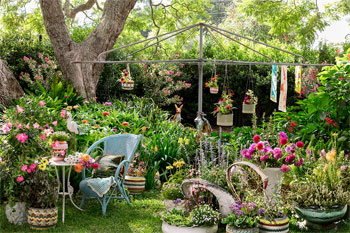 Question: How can we care for our plants during the colder weather?
Question: How can we care for our plants during the colder weather? Georgina Reid: Winter is a time for rest for plants as well as people! If you have indoor plants, you will not need to fertilize or water them as often in winter as in summer. Try watering every two weeks instead of every week. Also, keep you plants away from heaters and air conditioners. These tend to dry the air out - most indoor plants like humidity and can get a bit upset if placed too close to heaters.
Question: What's the difference between potted plants and plants directly planted in the ground?
Interview by Brooke Hunter
MORE

